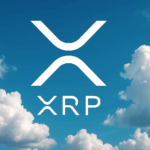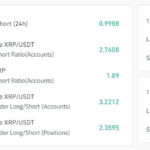
Ethereum’s Upcoming Upgrade ‘Fusaka’ May Reduce Costs for Layer-2 Solutions and Validators
After the successful implementation of the Pectra upgrade last week, which is Ethereum’s most significant enhancement in over a year, the core developers of the network are already pivoting their attention towards the upcoming upgrade, known as Fusaka.
Pectra marks the largest modification to Ethereum since the Merge in 2022, introducing several vital improvements designed to streamline staking for institutions, enhance wallet accessibility, and increase transaction efficiency.
Planning for Fusaka is already underway, with developers agreeing to incorporate a new Ethereum Improvement Proposal (EIP) dubbed “PeerDAS,” which aims to facilitate the network’s ability to handle larger “blobs” of transaction data.
Blobs, which were introduced with the Dencun upgrade, serve as dedicated areas for storing substantial data associated with transactions, housed off-chain. This approach alleviates congestion on the Ethereum blockchain and reduces gas fees, playing a crucial role in the expanding layer-2 ecosystem built atop Ethereum, such as Arbitrum, Optimism, and Coinbase’s Base, which offer faster and cheaper transaction processing compared to the main chain.
The PeerDAS proposal, short for Peer Data Availability Sampling, would enable validators to download only the necessary segments of data from blobs instead of the entire blobs to confirm that data has been published to the network.
Theoretically, the implementation of PeerDAS could significantly diminish layer-2 transaction costs, benefiting institutions that operate validators on the Ethereum blockchain.
“PeerDAS is extremely vital as we aim to aid layer-2 scalability,” stated Parithosh Jayanti, a devops engineer at the Ethereum Foundation, in a conversation over Telegram. “It allows us to dramatically increase the blob limit.”
Scheduled for deployment at the end of 2025, Fusaka will encompass a series of additional upgrades alongside PeerDAS. Nonetheless, Ethereum developers are frequently noted for postponing upgrades.
Initially slated for a late 2024 release, Pectra’s deployment was pushed back to the first quarter of 2025. Following some issues during testing, the completion was further delayed until May.
Throughout the past year, Ethereum developers have faced criticism for failing to swiftly implement necessary protocol updates. With the network’s token price faltering in recent months and many developers shifting to rival ecosystems, there has been an ongoing discourse within the community regarding whether the non-profit Ethereum Foundation, perceived as the network’s unofficial leader, is culpable.



















Post Comment